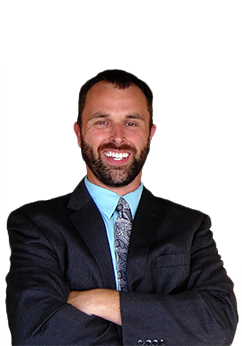A dental team needs to be knowledgeable about dentistry. At first glance, this statement might seem obvious and simplistic, but take a moment to ponder it further. Ask yourself: “Does each member of my dental team have a solid, general grasp of each procedure I perform? Could every team member pass along that knowledge and correctly educate a patient?” Even if you answered “yes” to both questions, dentistry is evolving faster than ever before, and with that comes changes and updates to clinical procedures and techniques. The more knowledgeable your dental team is about treatments and techniques, the easier it will be to create and maintain meaningful communication with your patients.
Like it or not, it’s a fact that patients often act differently with different office staff members. I don’t think this is an inherently bad thing, but simply the truth to patient care. How often will the dentist recommend treatment and answer all of the patient’s questions during an examination, only to have the patient ask the hygienist, the assistant or front desk member additional questions about the treatment? This happens to all of us from time to time, and it can be frustrating, but try to turn it into a positive. If the staff member is well-versed on the procedure in question, the patient inquiry can be viewed as a reinforcing second opinion. It’s a valuable opportunity to rediscuss the concepts with different participants and different examples and in various speaking styles. Dental knowledge is also imperative to effectively field patient phone calls at the front desk. A well-versed staff member can set the stage for excellent communication at the scheduled appointment by starting the discussion on the initial phone call.
My favorite method to create a knowledgeable team is to regularly hold staff “seminars” so we can discuss and review common patient questions and procedures. These seminars can be tailor-made to your office. They can be brief or lengthy, detailed or general, and frequent or infrequent as you see fit. Personally, I’ve always placed focus on getting all staff up-to-speed quickly on general concepts before delving into specific, detailed concepts. Achieving a uniform staff understanding of general concepts is a larger task than you might envision. I try to take 10-15 minutes during our lunch hour once a week to hold a staff seminar while we eat. Sometimes, I’ll have intraoral photos to discuss, but other times, it’s simply a verbal conversation. You could even make Microsoft PowerPoint presentations if you’d like. The following common general patient questions have been topics of some of our staff seminars:
- “Would I qualify for Invisalign?”
- “Do I need a crown with metal in it, or can I have a metal-free one?”
- “What does the doctor use the laser for?”
- “Should I do all my fillings at the same visit or split them up?”
- “How long does teeth-whitening last?”
- “I need a tooth extracted; will I need a bone graft?”
Once your general seminar topics have been exhausted, you have a few options. You could start the seminar series over from the beginning and run through it again. Or, you could start to delve deeper into procedural specifics and explain “why” techniques are what they are. Seminars centered on specific topics are excellent at creating a highly educated group of employees, but they often deal with detail outside the concerns of the common patient. It all depends on which direction you wish to grow your practice’s knowledge base. I feel I must mention a brief word of caution, especially regarding specific seminar topics. I am a big fan of scripting when it comes to answering patient questions during day-to-day operations. Care must be taken by staff members not to overstep their bounds both professionally and legally while disseminating their accumulated knowledge. If this should occur, it can cause quite a headache for the team and office as a whole. Scripting helps establish some loose parameters for the discussion so the staff member can defer to the doctor when applicable.
A highly knowledgeable staff is an invaluable asset to the dental practice and yields improved patient care. With well-informed staff members, patient communication is increased and improved. Day-to-day operations also tend to run smoother and with less hiccups. Additionally, both stress and workload for the dentist tend to be less due to the additional autonomy of skilled staff members. Without a doubt, everyone, from dentist, to staff, to patients, benefits from a highly knowledgeable dental team.


Leave a comment